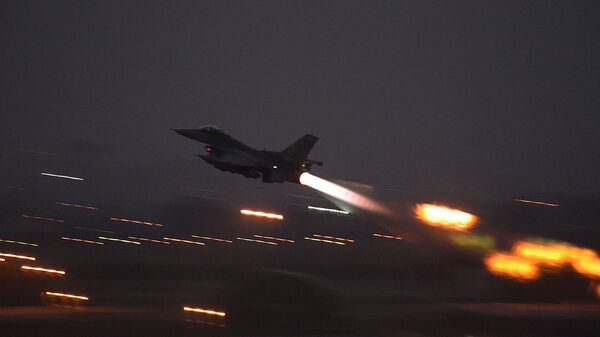In 2003, Brussels released a document titled "A Secure Europe in a Better World." The brief promoted "a ring of well governed countries to the East of the European Union and on the borders of the Mediterranean" as one of the key objectives of the EU's security strategy.
More than a decade later, "Europe is encircled by a belt of ruins, instead of a ring of stable states," including Ukraine, Turkey, Syria, Lebanon, Egypt and Tunisia, the Germany daily noted. Some of these nations are "fragile," while others have been torn apart by wars and internal strife.
Yet European leaders, and Washington for that matter, have been unable to offer solutions to these challenges.

Sixteen months after the US-led coalition launched a campaign aimed at destroying Daesh, the terrorist group still controls large areas of Iraq and Syria. The United States has unleashed more than 35,000 bombs and missiles against the self-styled caliphate, killing approximately 23,000 militants, but even this has not prevented Daesh from gaining a foothold in Libya.
"Managing crises that have increasingly become boundless and borderless remains an enormous challenge and is likely to get even more complicated in the future," Wolfgang Ischinger, Chairman of the Munich Security Conference, noted in the recently released Munich Security Report.



